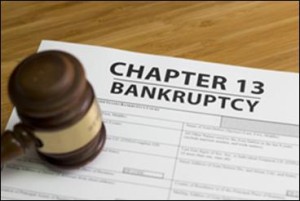Jupiter Chapter 13 Bankruptcy Attorney
 A Chapter 13 bankruptcy is commonly referred to as a “reorganization” because the debtor proposes a three to five year bankruptcy plan to the court explaining how the debtor intends to reorganize his or her debts into something manageable. The main difference in a Chapter 7 case and a Chapter 13 case is that the debtor can afford to pay a portion of his or her unsecured debts. In a Chapter 13 case, the debtor has disposable income after allowable expenses and deductions are subtracted from gross income.
A Chapter 13 bankruptcy is commonly referred to as a “reorganization” because the debtor proposes a three to five year bankruptcy plan to the court explaining how the debtor intends to reorganize his or her debts into something manageable. The main difference in a Chapter 7 case and a Chapter 13 case is that the debtor can afford to pay a portion of his or her unsecured debts. In a Chapter 13 case, the debtor has disposable income after allowable expenses and deductions are subtracted from gross income.
The amount the debtor pays through his or her plan usually depends on the amount of disposable income. An experienced Jupiter Chapter 13 bankruptcy attorney understands bankruptcy law regarding allowable deductions and expenses and other benefits that Chapter 13 mayprovide, depending on the circumstances. For example, it may be possible to reduce the lien on non-homestead secured property to its current market value, and to extend the payments over the life of the Chapter 13 Plan. It may also be possible to allow you to keep your home by catching up with your past due mortgage payments over the life of the Plan. We use this knowledge to propose the lowest plan payment allowed by law to afford the debtor the relief he or she needs to recover and rebuild. A Chapter 13 bankruptcy is often an affordable solution when you cannot pay all of your debts in full.
Facts About a Jupiter Chapter 13 Bankruptcy
Why do I have to file a Chapter 13 bankruptcy? With some exceptions, in order to qualify for a Chapter 7 bankruptcy case, your income must be below the median income for a family of your size for your location. If you have disposable income after deducting your allowable expenses and deductions, you may be required to file a Chapter 13 case.
Who determines the amount of my Chapter 13 bankruptcy plan? Your bankruptcy attorney calculates the proposed payment based on several factors including your income, expenses, assets, and debts, both secured and unsecured. The court must confirm the plan. In some cases, your attorney may need to change some of the terms to obtain court approval. Debtors pay pennies on the dollar to their unsecured creditors in many plans; therefore, you will be paying much less per month than you are attempting to pay now.
What happens to the remaining balance owed on my unsecured debts? Once you make all plan payments and your Chapter 13 bankruptcy case is completed successfully, the remaining balances owed on your unsecured debts are discharged. The creditors cannot take any action to collect the debt and you are released from the legal liability for those debts.
How long is a Chapter 13 plan? A typical Chapter 13 plan is 60 months; however, some plans may be completed within 36 months.
Do You Have Questions About Filing Chapter 13?
If you are considering a Chapter 13 bankruptcy case, contact The Law Office of Richard S. Weinstein, P.A. for a free bankruptcy consultation. Contact my office online or by calling 561-745-3040.

